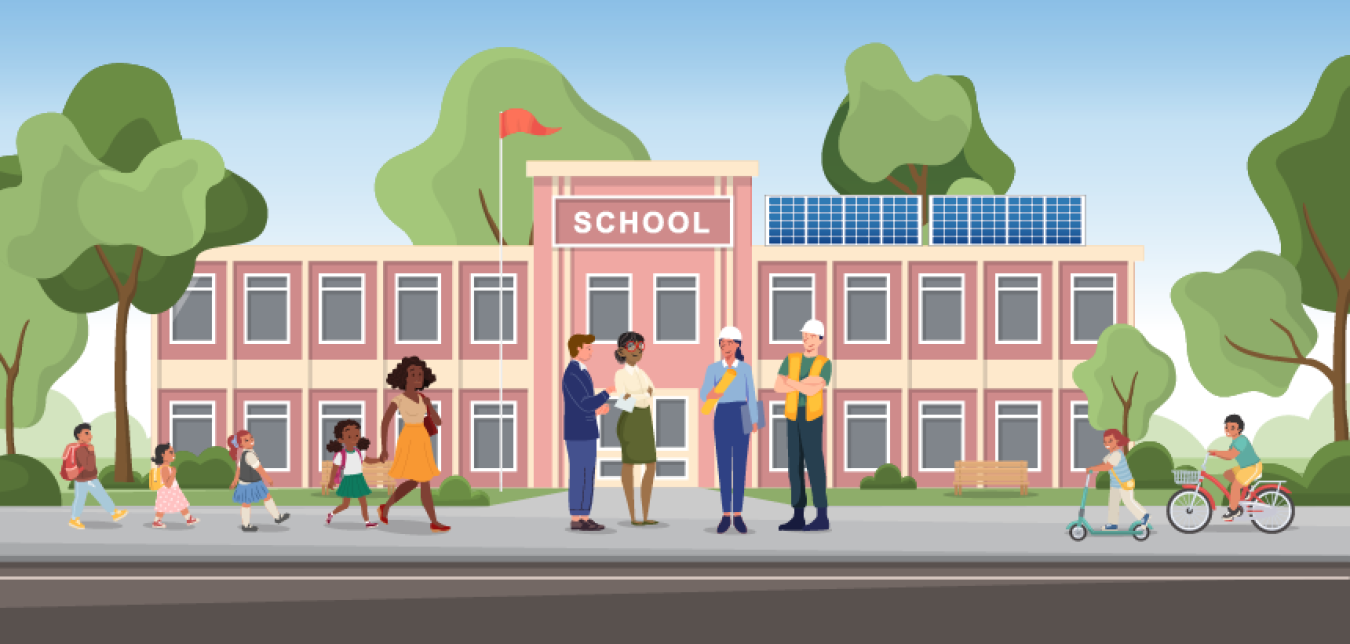Discover the Advantages of Campaigning For: Save Temecula Schools
Understanding the Value of Schools in Kid Advancement and Area Growth
Schools offer as crucial organizations for youngster growth and area growth, supplying environments where academic accomplishments are enhanced by the cultivation of social skills and direct exposure to diverse point of views. These educational settings not only advertise vital thinking and efficient interaction but also foster empathy with joint tasks. Moreover, institutions' interaction with regional communities with service-learning efforts enhances the bond between families and universities. This symbiotic relationship emphasizes the relevance of schools in supporting energetic citizenship and lifelong learning behaviors. What are the specific systems by which these organizations accomplish such extensive influences?
Academic Accomplishment
Academic achievement functions as a foundation of youngster development, providing the structure whereupon future understanding and success are constructed. Colleges play a pivotal duty in cultivating this academic growth, offering structured environments where youngsters can get crucial knowledge and cognitive abilities. Standardized educational program ensure that students gain effectiveness in core subjects such as mathematics, science, and language arts, which are critical for both greater education and professional possibilities.
In addition to presenting fundamental scholastic skills, institutions likewise cultivate critical reasoning, analytic capacities, and intellectual interest. These cognitive expertises are vital for navigating complicated real-world situations and adapting to the ever-evolving demands of the contemporary office. Teachers, as facilitators of understanding, use diverse instructional strategies to accommodate diverse knowing designs, thereby making best use of individual pupil possibility.
In addition, academic success is carefully connected to self-worth and inspiration. Youngsters who experience scholastic accomplishments are more probable to develop a favorable self-concept and a lifelong enthusiasm for discovering. Schools additionally supply various resources, such as libraries and modern technology, which further improve the educational experience and prepare trainees for a highly innovative society.
Social Ability Growth
Beyond scholastic achievement, the function of institutions in social ability advancement is indispensable. Schools work as a main place for youngsters to find out and practice vital social abilities such as communication, teamwork, and problem resolution. In the organized atmosphere of a classroom, pupils interact with peers, teachers, and various other institution team, offering numerous possibilities to create these critical abilities.
Effective social ability development in institutions is assisted in with team activities, joint jobs, and extracurricular programs. These interactions help students recognize social standards, develop compassion, and foster a feeling of community. As an example, group assignments show students how to function together towards a typical goal, pay attention to different perspectives, and navigate disagreements constructively.

The growing of social abilities throughout school years lays a foundation for future individual and specialist relationships. Save Temecula Schools. As trainees grow, the ability to efficiently work together and interact comes to be increasingly important, highlighting the college's crucial role in alternative youngster growth
Exposure to Variety
Exposure to diversity in schools is fundamental to promoting an inclusive mindset and broadening students' perspectives. Schools act as a microcosm of the wider culture, and experiencing diverse cultures, languages, and socioeconomic histories within this setting furnishes trainees with important abilities for browsing a significantly globalized globe. This exposure encourages compassion, reduces prejudices, and advertises shared regard among peers.
Varied class additionally boost social and cognitive development. Research study indicates that students who connect with peers from diverse histories display much better this hyperlink problem-solving abilities and creative thinking. They discover to appreciate different point of views, which improves classroom discussions and fosters an extra vibrant knowing experience. This understanding of variety prepares students for future workplaces that worth modern proficiency.

Neighborhood Involvement
The advantages of varied class prolong beyond the institution wall surfaces, cultivating a solid sense of community interaction among trainees. By engaging with peers from various cultural, socioeconomic, and ethnic backgrounds, trainees obtain a wider point of view and an appreciation for variety. This exposure urges them to come to be energetic people who are willing to add favorably to their areas.
Colleges that emphasize neighborhood interaction commonly integrate service-learning jobs, which allow trainees to attend to real-world issues while applying academic abilities. These tasks not just improve students' understanding of their coursework yet additionally instill a feeling of duty and compassion. In addition, partnerships in between institutions and regional organizations give students with possibilities to get involved in neighborhood events, even more solidifying their duty as positive community participants.
In addition, parental and area involvement in institutions reinforces the bond between universities and the communities they serve. When institutions open their doors to community events, workshops, and volunteer opportunities, they develop a joint atmosphere that profits all stakeholders. This mutual assistance system ensures that pupils receive holistic growth, preparing them to end up being well-shaped individuals that contribute and value to their neighborhoods. Via these efforts, view colleges play an essential role in nurturing neighborhood involvement and promoting societal development.
Lifelong Knowing Routines
Creating long-lasting learning practices is necessary for a youngster's continual development and adaptability in an ever-changing world. Schools play a critical function in instilling these routines by producing a setting that cultivates inquisitiveness, essential reasoning, and a love for expertise. Via varied educational programs and after-school activities, instructors urge trainees to discover numerous subjects, examine details seriously, and apply their learning to real-world situations.

Additionally, institutions give a structured atmosphere where youngsters can develop self-control and time administration abilities, both of which are important for continual learning. By highlighting the significance of establishing objectives, assessing development, and adjusting strategies, universities prepare trainees to browse the intricacies of grown-up life, ensuring they stay long-lasting students and factors to culture.
Conclusion
In conclusion, schools are essential in promoting child growth and community growth by providing environments favorable to scholastic success, social ability advancement, and direct exposure to variety. Ultimately, institutions cultivate long-lasting understanding practices, furnishing people with the needed understanding and skills to contribute positively to culture.
In the structured environment of a classroom, students engage with peers, educators, and other school staff, offering many opportunities to establish these critical capabilities.
In significance, direct exposure to variety within schools not just enriches private trainees but likewise strengthens the social fabric of the area as a whole.
The benefits of varied classrooms prolong past the college walls, cultivating a strong sense of area engagement among pupils.Schools that highlight area involvement often include service-learning projects, which enable trainees to resolve real-world problems while applying scholastic abilities. Partnerships between colleges and local companies provide students with chances to take part in area events, further solidifying their function as positive neighborhood participants.